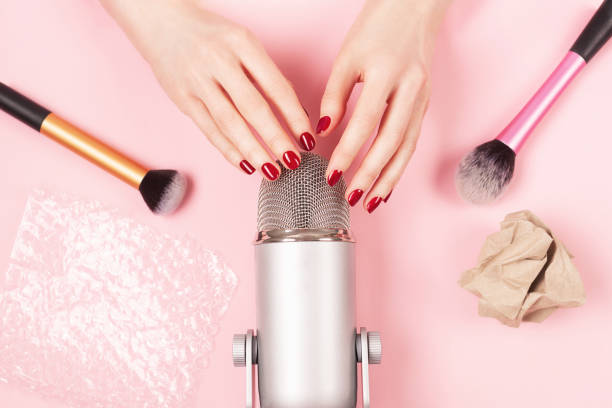That pleasant little thrill you get when the hairdresser massages your head while shampooing your hair is ASMR. ASMR stands for Autonomous Sensory Meridian Response.
It is a pleasant sensation that can take the form of tingling or chills in different parts of the body such as the neck, head or peripheral areas following a visual, olfactory, cognitive or auditory stimulus. Since 2010, ASMR has become a sensation on the internet with a public in search of sweetness. Zoom in on ASMR!
ASMR, a state of extreme relaxation
L'ASMR is like a reflex that is triggered when you are in a state of deep calm. The feeling of well-being and pleasure can be intense. On imaging, we notice that the areas of the brain sensitive to dopamine are activated, leading to a series of chain reactions such as :
- well-being,
- slowing of the heart rate,
- deep relaxation,
- feeling of fullness and satisfaction.
ASMR to calm stress and insomnia
The effects of stress on health are no longer in question: a decrease in immune responseirritability, fatigue, sleep problemof dos, de digestionheart... ASMR is a method that allows you to put your body and mind on pause because there is nothing to do, just to let be.
To receive the benefits of ASMR, you simply need to be available, create a space of calm, isolate yourself and welcome the sensations. The body relaxes, breathing calms down, the heart slows down, blood pressure drops, the mind settles down. Depending on the person, the first shivers can be felt as soon as the first contact is made (auditory or tactile). Hormones of well-being are then released.
Practiced in the evening, ASMR sessions help people fall asleep. The mind and body are calm and relaxed, invaded by this feeling of well-being and safety. Morpheus only has to pick you up...

The practice of ASMR is not effective on everyone
Although there are not many studies on the effects of ASMR, the study by psychology researcher Giuila Poerie highlighted the different physiological reactions induced by ASMR videos on sensitive individuals:
- decrease in heart rate,
- increased electrical activity on the skin surface.
However, it seems that the ASMR does not trigger in all the participants in the study. Indeed, 50% of the subjects were not sensitive to it... this can be explained by the subjectivity of each person in front of the pleasure.
What triggers the ASMR?

The triggers for ASMR are:
Certain sounds or noises: crumpling of a sheet of paper, whispering, tapping, rubbing, bursting of bubble wrap, chimes.
Visuals: flashlight, watching someone brush another person's hair as indicated by the neurologist Dr. Pierre Lemarquis.
The tactile : touching along the spine.
Only, the most important thing is the context. The recipient must be in total openness and receptivity in a calm, quiet environment in which he or she feels safe.
Practice ASMR sessions to replace anxiolytics
It seems that the ASMR would allow to reduce the consumption of anxiolytic and even analgesic. The relaxation felt modifies the hormonal secretions of stress (cortisol) and increases those related to pleasure (dopamine and serotonin). Depending on the sensitivity of each person, the sessions can focus on :
- on hearing,
- touch it,
- odorat.
You can easily find videos on the web that offer auditory ASMR sessions. For this, wearing a headset or earpiece is recommended for a total immersion.
To conclude with the ASMR
The practice of ASMR is more complete than what is conveyed on Youtube. Practitioners of hypnosis or mindfulness meditation use this technique in their coaching to induce calm and serenity as a complement to their practice. If you are interested in this approach, do not hesitate to look for a professional who is aware of this method!



